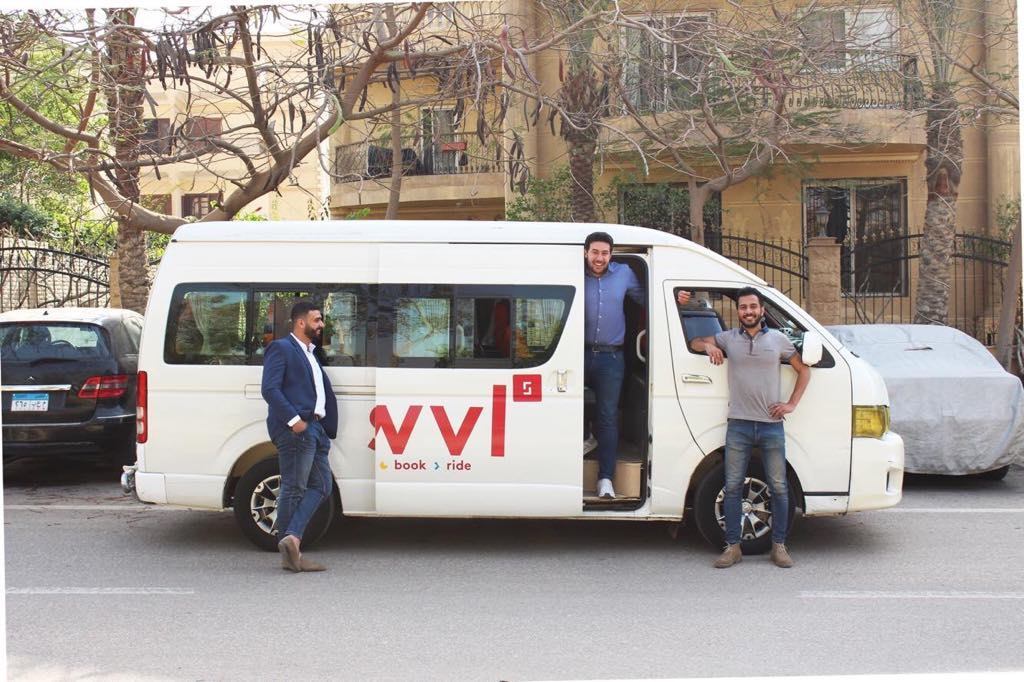How Ride-Sharing Startup SWVL Plans To Take Over Ride-Sharing In Egypt
Just founded about 2 years ago, Egypt’s ride-sharing startup SWVL is on its way to displacing market shares for other Egypt’s ride-sharing startups. The startup recently signed an agreement with Ford motor company, to deploy more cars on the road.
How The Terms of This Agreement Would Be A Game Changer for SWVL
- The agreement will combine the brilliance of the Ford Motor Transit, world’s best-selling van brand, with an app-based mass transit system that enables commuters in Egypt’s major cities to enjoy an affordable, convenient, safe and reliable alternative to existing transportation services.
- Ford Transit, which the startup intends to use is already the third best selling van of all times. SWVL is already in possession of about 100 Ford Transits. Hazem Taher, SWVL’s Head Marketing Manager, said the vans were ready to go and they’re excited to push them on SWVL’s routes.
- This agreement not only gives SWVL an advantage within the Egyptian private transport market. It also, by some distance, allows it to broaden its reach in the MENA (the Middle East and North Africa) market.
- The timing is more than excellent for SWVL. Egypt hosts this year’s TOTAL African cup of Nations (AFCON), with commuters expected to quadruple in major Egyptian cities where matches will be played.
- From Alexandria to Cairo, to any place in Egypt, SWVL provides commuters in Egypt’s major cities with cheaper alternatives to existing transportation services.
- SWVL’s goal is to make it easier for Egypt’s residents to book bus rides at a fixed rate on existing routes. Users schedule trips, pay online or in cash and are given virtual boarding passes.
- Even with fierce competition from the likes of Buseet and Uber vying into premium public transport service, SWVL’s application has been downloaded for well over 360,000 times on Google play store and Apple iStore.
See Post: Zimbabwean Startup Law Basket hopes to change Legal Service Businesses in Zimbabwe and Africa
- The platform completes 100,000 rides monthly.
- It was the first company to introduce the service in Egypt in 2017 before Careem and Uber joined the sector late last year.

What SWVL Is Doing Differently
SWVL is different from its competitors because of its series of partnership deals, including the current one. The startup’s credit facility agreements with Nasser Social Bank and EFG Hermes Bank, and after-sales support and maintenance services with Ford-trained technicians are some of these moves. What SWVL users think about the startup is its priority on affordability, comfort, and safety.

How This Partnership Will Help SWVL
SWVL founders are convinced this partnership will help it take the next big step forward.
“SWVL was created to help improve people’s lives by revolutionizing the transport scene in Egypt with a smart solution that helps ease the commute. We’re proud of the results we’ve achieved in such a short period of time, and the work that Ford has put in to help elevate the levels of service we offer our customers,” CEO, Moustafa Kandil said.
I think we are in uncharted territory when it comes to expansion when it comes to growth for an Egyptian startup. We feel that this is our responsibility, and we are committed to bringing what we have done in Egypt, scaling it even further and bringing it to the rest of the emerging markets.
Speaking at the announcement in Cairo, Ford North Africa MD Achraf El-Boustani said,
“We are thrilled to bring Ford Transit to Egypt, debuting in such a prominent and important role through this partnership with SWVL. The key to Ford Transit’s success as a mobility platform is its reputation for dependability, versatility and capability, and we’re confident that Swvl operators here will soon learn just why thousands of people around the world rely on the Ford Transit to get the job done.”
SWVL’s domestic competition includes Uber and Careem, who are sometimes the same company. But SWVL has the momentum right now, raising all the funds, signing all the partnerships, expanding into major African cities, many of which are clogged by chugs of traffic and would represent ready markets for SWVL’s deft ride-sharing system.
SWVL was founded in 2017 by three young Egyptian entrepreneurs — Mostafa Kandil, Ahmed Sabbah and Mahmoud Nouh. As noted on its website, the company is “a revolutionary idea born from passion, loyalty, and persistence to face all challenges on the table …not just a means to facilitate commuting, but a hunger to strive for solutions, encourage the contribution of youth in innovation and inspire change.” So far, they appear to be doing just that.

Of the total amount of about $686.4 million raised by African tech startups last year, Egypt got a share of $68 million. SWVL got about $38 million out of Egypt’s share, making the startup the most-funded Egyptian startup. The startup has expanded to Nairobi, Kenya, with plans for Manila, Jakarta, and Dakar.
In February this year, SWVL entered the Ugandan market, registering a presence in Kampala.
Charles Rapulu Udoh

Charles Rapulu Udoh, a Lagos-based Lawyer with special focus on Business Law, Intellectual Property Rights, Entertainment and Technology Law. He is also an award-winning writer. Working for notable organizations so far has exposed him to some of industry best practices in business, finance strategies, law, dispute resolution, and data analytics both in Nigeria and across the world.

